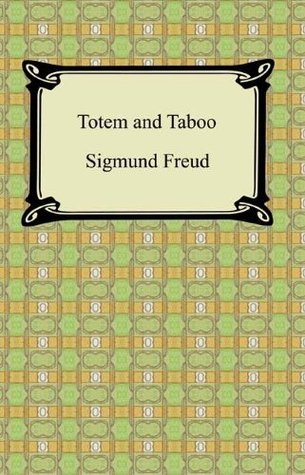More on this book
Community
Kindle Notes & Highlights
archaic and no longer to be found elsewhere. The aborigines of Australia are looked upon as a peculiar race which shows neither physical nor linguistic relationship with its nearest neighbors, the Melanesian, Polynesian and Malayan races. They do not build houses or permanent huts; they do not cultivate the soil or keep any domestic animals except dogs; and they do not even know the art of pottery. They live exclusively on the flesh of all sorts of animals which they kill in the chase, and on the roots which they dig. Kings or chieftains are unknown among them, and all communal affairs are
...more
Almost everywhere the totem prevails there also exists the law that the members of the same totem are not allowed to enter into sexual relations with each other; that is, that they cannot marry each other. This represents the exogamy which is associated with the totem.
"In Australia the regular penalty for sexual intercourse with a person of a forbidden clan is death. It matters not whether the woman is of the same local group or has been captured in war from another tribe; a man of the wrong clan who uses her as his wife is hunted down and killed by his clansmen, and so is the woman;
If, for example, the man belongs to a clan with the totem of the Kangaroo and marries a woman of the Emu totem, the children, both boys and girls, are all Emu.
It is known that also among civilized races the relation of son-in-law and mother-in-law belongs to one of the most difficult sides of family organization.
This emotional identification with the daughter may easily go so far with the mother that she also falls in love with the man her daughter loves, which leads, in extreme cases, to severe forms of neurotic ailments on account of the violent psychic resistance against this emotional predisposition.
Taboo is a Polynesian word, the translation of which provides difficulties for us because we no longer possess the idea which it connotes. It was still current with the ancient Romans: their word "sacer" was the same as the taboo of the Polynesians.
For us the meaning of taboo branches off into two opposite directions. On the one hand it means to us sacred, consecrated: but on the other hand it means, uncanny, dangerous, forbidden, and unclean.
Wundt [1] calls taboo the oldest unwritten code of law of humanity. It is generally assumed that taboo is older than the gods and goes back to the pre-religious age.
"The objects of taboo are many: 1. direct taboos aim at (a) protection of important persons—chiefs, priests, etc.—and things against harm; (b) safeguarding of the weak—women, children and common people generally—from the powerful mana (magical influence) of chiefs and priests; (c) providing against the dangers incurred by handling or coming in contact with corpses, by eating certain food, etc.; (d) guarding the chief acts of life—births, initiation, marriage and sexual functions—against interference; (e) securing human beings against the wrath or power of gods and spirits; [3] (f) securing
...more
Taboos are very ancient prohibitions which at one time were forced upon a generation of primitive people from without, that is, they probably were forcibly impressed upon them by an earlier generation. These prohibitions concerned actions for which there existed a strong desire. The prohibitions maintained themselves from generation to generation, perhaps only as the result of a tradition set up by paternal and social authority.
The oldest and most important taboo prohibitions are the two basic laws of totemism: namely not to kill the totem animal and to avoid sexual intercourse with totem companions of the other sex.
a man who has killed an enemy in combat becomes "unclean," the same word being employed which is applied to women during menstruation or confinement.
The Flamen Dialis, the high-priest of Jupiter in Rome, had to observe an extraordinarily large number of taboo rules. He was not allowed to ride, to see a horse or an armed man, to wear a ring that was not broken, to have a knot in his garments, to touch wheat flour or leaven, or even to mention by name a goat, a dog, raw meat, beans and ivy; his hair could only be cut by a free man and with a bronze knife, his hair combings and nail parings had to be buried under a lucky tree; he could not touch the dead, go into the open with bare head, and similar prohibitions.
Among the negroes of Sierra Leone the resistance against accepting the kingly honor was so great that most of the tribes were compelled to make strangers their kings.
Nothing testifies so much to the influence of mourning on the origin of belief in demons as the fact that demons were always taken to be the spirits of persons not long dead.
Taboo conscience is probably the oldest form in which we meet the phenomenon of conscience.
Taboo is a command of conscience, the violation of which causes a terrible sense of guilt which is as self-evident as its origin is unknown.
To primitive man the continuation of life—immortality—would be self-evident. The conception of death is something accepted later, and only with hesitation, for even to us it is still devoid of content and unrealizable.
animism in itself was not yet a religion but contained the prerequisites from which religions were later formed.


